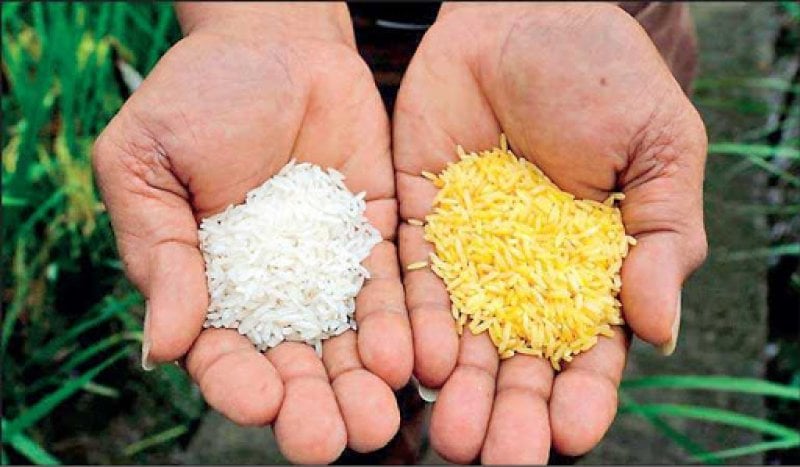The Philippines has become the world's first country Friday to approve the commercial production of genetically modified "golden rice".
Crops such as rice, wheat, and soybeans, as well as fruits and vegetables have a naturally occurring "glitch" in the way they photosynthesize that causes the plants to use up energy and resources, drastically suppressing productivity.
A biosafety permit issued by government regulators paves the way for the rice, enriched with the vitamin A-precursor beta-carotene to make it more nutritional, to be grown by farmers across the country, its developers said.
Russell Reinke of the Philippine-based International Rice Research Institute (IRRI) said "It's a really significant step for our project because it means that we are past this regulatory phase and golden rice will be declared as safe as ordinary rice.''
The next step was to "take our few kilos of seed and multiply it... so it can be made more widely available", he said.
IRRI has spent two decades working with the Department of Agriculture-Philippine Rice Research Institute to develop golden rice, named for its bright yellow hue.
It is the first genetically modified rice approved for commercial propagation in South and Southeast Asia, officials said Friday.

Golden rice has faced strong resistance from environmental groups opposed to genetically altered food plants. At least one test field in the Philippines was attacked by activists.
The possibility of a broad GMO ban, twinned with a more fully-formed policy to prohibit the widely-used weed killer glyphosate, has been lauded by environmental groups such as Greenpeace.
Despite passing the final regulatory hurdle, the rice is still a way off appearing in food bowls.
"Limited quantities" of seed could start to be distributed to Filipino farmers in selected provinces next year, Reinke said.
Ordinary rice, a staple for hundreds of millions of people particularly in Asia, produces beta-carotene in the plant, but it is not found in the grain.
"The only change that we've made is to produce beta-carotene in the grain," Reinke said.
"The farmers will be able to grow them in exactly the same way as ordinary varieties... it doesn't need additional fertiliser or changes in management and it carries with it the benefit of improved nutrition."
Vitamin A is essential for normal growth and development, the proper functioning of the immune system, and vision.
World Health Organization data show vitamin A deficiency causes up to 500,000 cases of childhood blindness every year, with half of those dying within 12 months of losing their sight.
Nearly 17 percent of children under the age of five in the Philippines are deficient in vitamin A, according to IRRI.
"We've always said we will provide 30-50 percent of that estimated average requirement (of vitamin A), and when you add that to what is existing in the diet you push up a whole cohort of the population from insufficiency to sufficiency," Reinke said.
Golden rice was analysed by food safety regulators in Australia, the United States and Canada and was given the thumbs up, he said, but it has not been approved in these countries for commercial production. It is also being reviewed by regulators in Bangladesh.
(With inputs from agencies)
www.wionews.com



















